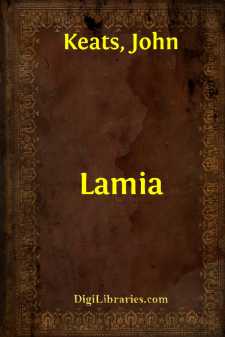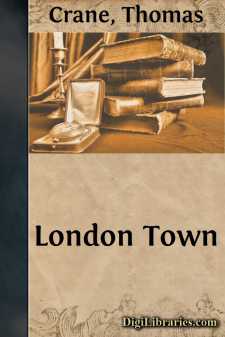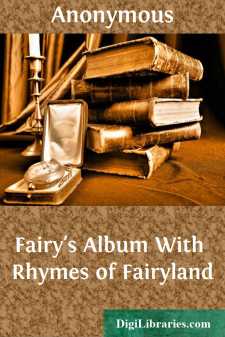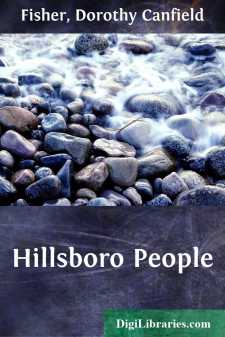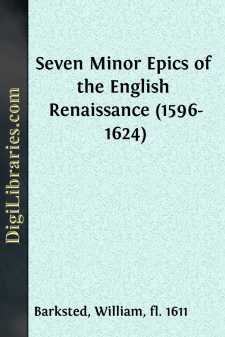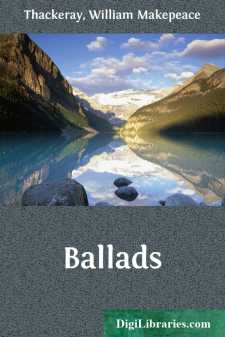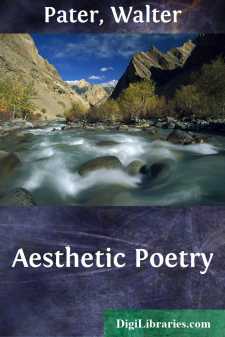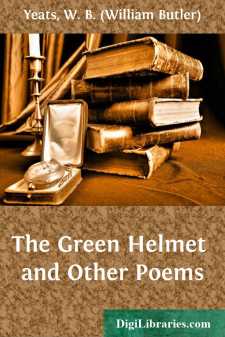Poetry
- American 96
- Ancient, Classical & Medieval 41
- Asian 15
- Australian & Oceanian 11
- Canadian 11
- Caribbean & Latin American 5
- Children's Poetry & Nursery rhymes 51
- Continental European 11
- English, Irish, Scottish, Welsh
- General 483
- Inspirational & Religious 7
- Middle Eastern 3
English, Irish, Scottish, Welsh Books
Sort by:
by:
John Keats
Part 1 Upon a time, before the faery broodsDrove Nymph and Satyr from the prosperous woods,Before King Oberon's bright diadem,Sceptre, and mantle, clasp'd with dewy gem,Frighted away the Dryads and the FaunsFrom rushes green, and brakes, and cowslip'd lawns,The ever-smitten Hermes empty leftHis golden throne, bent warm on amorous theft:From high Olympus had he stolen light,On this side...
more...
by:
Thomas Crane
One foot up and one foot downAnd that's the way to— [02] [03]C,B,W,WITL, ,WFI:C,—SP',,U, O'. [04] [05] [06] [07]CONTENTSPageTHE TOWER OF LONDON, , ,THE OMNIBUSTHE PENNY-ICE MANCOVENT GARDEN,THE PENNY-TOY MANTHE ORANGE GIRLTHE FIRST OF MAYST. JAMES' PARK,WESTMINSTER ABBEY, ,CHARITY GIRLSTHE BRITISH MUSEUM, ,THE UNDERGROUND RAILWAY,THE ZOOLOGICAL GARDENS, ,THE MILK WOMANTHE MUFFIN...
more...
by:
Anonymous
This is Fairy's Album.This is Fairy, bright as Spring,Loving every living thingWith a love so sweet and true,That all creatures love her too!This is Fairy, bright as Spring,In Fairy's Album. This is Fairy, wondrous wise,Sunshine laughing in her eyes,Who will prattle on for hoursTo the brooks and trees and flowers,To the birds and butterflies,To all creatures 'neath the...
more...
AT THE FOOT OF HEMLOCK MOUNTAIN "In connection with this phase of the problem of transportation it must be remembered that the rush of population to the great cities was no temporary movement. It is caused by a final revolt against that malignant relic of the dark ages, the country village and by a healthy craving for the deep, full life of the metropolis, for contact with the vitalizing stream of...
more...
by:
Jean Ingelow
ROSAMUND. His blew His winds, and they were scattered. 'One soweth and another reapeth.' Ay,Too true, too true. One soweth—unawareCometh a reaper stealthily while he dreams—Bindeth the golden sheaf, and in his bosomAs 't were between the dewfall and the dawnBears it away. Who other was to blame?Is it I? Is it...
more...
THE BROOK.I come from haunts of coot and hern,I make sudden sallyAnd sparkle out among the fern,To bicker down a valley.By thirty hills I hurry down,Or slip between the ridges,By twenty thorps, a little town,And half a hundred bridges.I chatter over stony ways,In little sharps and trebles,I bubble into eddying bays,I babble on the pebbles.With many a curve my banks I fretBy many a field and fallow,And...
more...
by:
William Barksted
INTRODUCTION Professor Elizabeth Story Donno, in her recent (New York, 1963), has made an important contribution to both scholarship and teaching. Not only has she brought together for the first time in one volume most of the extant Elizabethan minor epics, but in so doing, she has hastened the recognition that the minor epic, or "epyllion" as it has often been called in modern times,[] is a...
more...
THE CHRONICLE OF THE DRUM. PART I. At Paris, hard by the Maine barriers,Whoever will choose to repair,Midst a dozen of wooden-legged warriorsMay haply fall in with old Pierre.On the sunshiny bench of a tavernHe sits and he prates of old wars,And moistens his pipe of tobaccoWith a drink that is named after Mars. The beer makes his tongue run the quicker,And as long as his tap never fails,Thus over his...
more...
by:
Walter Pater
[213] THE "aesthetic" poetry is neither a mere reproduction of Greek or medieval poetry, nor only an idealisation of modern life and sentiment. The atmosphere on which its effect depends belongs to no simple form of poetry, no actual form of life. Greek poetry, medieval or modern poetry, projects, above the realities of its time, a world in which the forms of things are transfigured. Of that...
more...
HIS DREAM I swayed upon the gaudy stern The butt end of a steering oar, And everywhere that I could turn Men ran upon the shore. And though I would have hushed the crowd There was no mother’s son but said, “What is the figure in a shroud Upon a gaudy bed?” And fishes bubbling to the brim Cried out upon that thing beneath, It had such dignity of limb, By the sweet name of Death. Though I’d my...
more...


